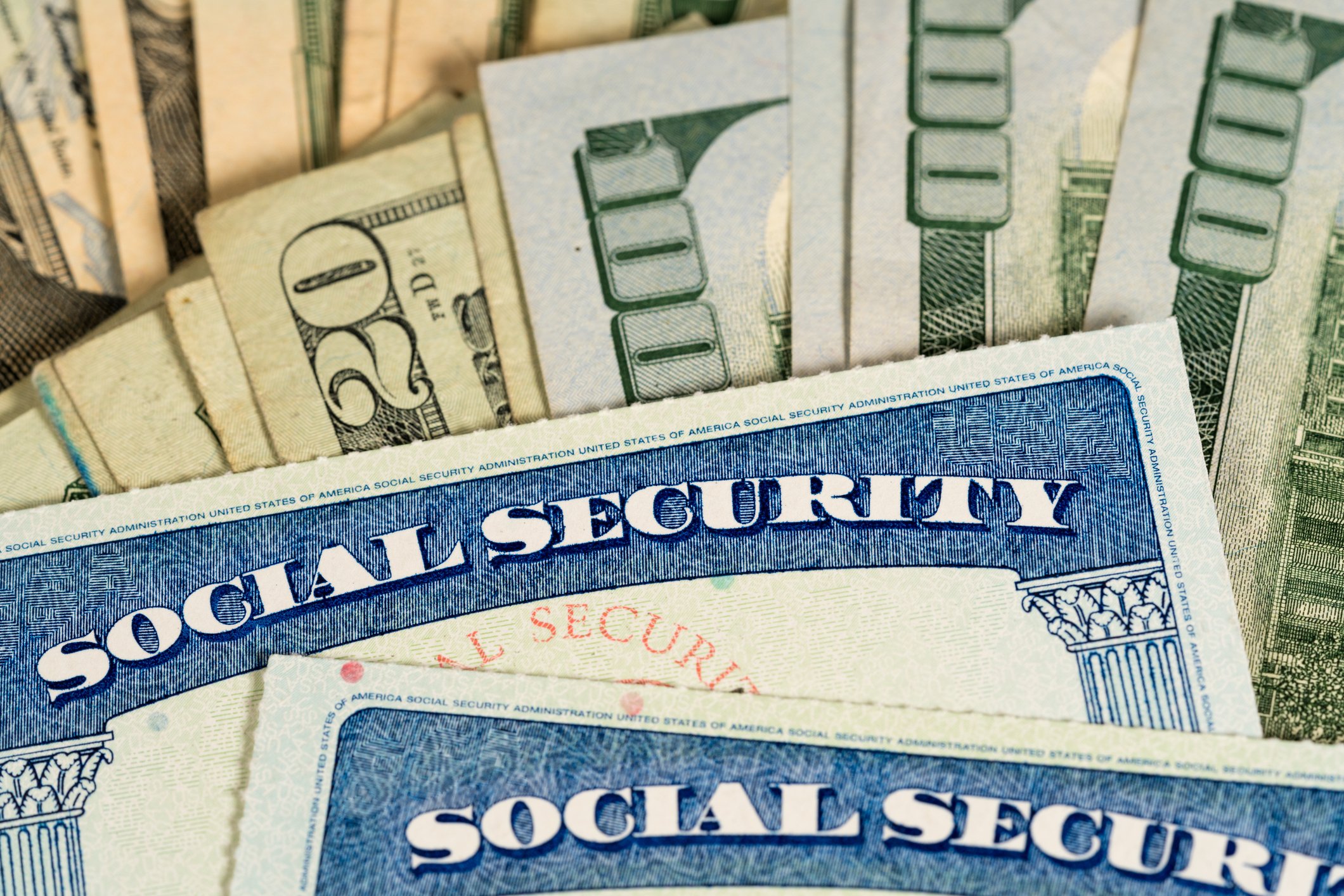Chances are, Social Security will end up constituting a notable portion of your retirement income, even if you enter your golden years with a nice amount of savings. That’s why it’s so important to claim your benefits strategically.
Though your benefits are calculated by taking an inflation-adjusted average of your wages during your 35 highest-paid years on the job, the age at which you claim them could cause that number to change. If you file for benefits at your precise full retirement age, or FRA, you’ll get the exact amount you’re entitled to based on your earnings history. FRA is either 66, 67, or somewhere in between, depending on your year of birth. File earlier (you can do so starting at age 62), and you’ll reduce your benefits for each month you claim them ahead of FRA. You can also delay benefits past FRA and accrue credits that boost them by 8% a year, up until you turn 70.

IMAGE SOURCE: GETTY IMAGES.
To give you an idea of how your filing age could impact your benefits, imagine you’re entitled to $1,600 a month at an FRA of 67. Filing at 62 will leave you with just $1,120 a month instead, while filing at 70 will give you $1,984.
To figure out when it’s best for you to claim Social Security, ask yourself these critical questions.
1. Am I still working?
The fact that you’re collecting a paycheck means that you should, in theory, have the option to hold off on filing for benefits and grow them in the process. But that’s not all. Though you’re allowed to work and receive Social Security income simultaneously, if you do so before FRA, you’ll risk having some of your benefits withheld if you earn too much. Now the money you have withheld won’t be lost completely; it’ll be added back into your benefits once you reach FRA. But because filing before FRA means taking a reduction in benefits, it may not be worth it if you’re apt to have some of that income withheld anyway.
How much can you earn without having it impact your benefits? That threshold changes from year to year, but in 2019, you can earn up to $17,640 without losing benefits. Past that point, you’ll have $1 in benefits withheld for every $2 you earn. If you’ll be reaching FRA at any point this year, you can earn up to $46,920 without having benefits withheld. After that, you’ll have $1 in Social Security withheld for each $3 you earn.
2. Do I have a healthy level of savings?
Social Security will generally replace about 40% of your pre-retirement income if you were an average earner. Most seniors, however, need roughly double that amount to live comfortably. If you have a nice amount of money socked away for retirement, then you may be okay to file for benefits at FRA, or even before. But if you don’t have much in the way of savings, you’ll need all the money you can get from Social Security, in which case delaying benefits as long as you can might make sense.
3. Do I have a spouse who’s likely to outlive me?
If you’re single, you’ll have just your own retirement income needs to consider when deciding when to claim Social Security. But if you’re married with a much younger or healthier spouse who’s therefore likely to outlive you, you’ll need to consider how your decision will impact him or her. Once you pass, your spouse will be entitled to survivors benefits, and the more money you collect from Social Security, the more he or she stands to receive. If you file for benefits early and reduce them in the process, it could wind up hurting your spouse. On the flipside, delaying benefits as long as possible could make for a more financially secure lifestyle for your spouse when you’re gone.
Choosing a Social Security filing age is no easy feat. Your best bet, therefore, is to understand the pros and cons of filing at different points in life, and arrive at a decision that makes sense for you.





